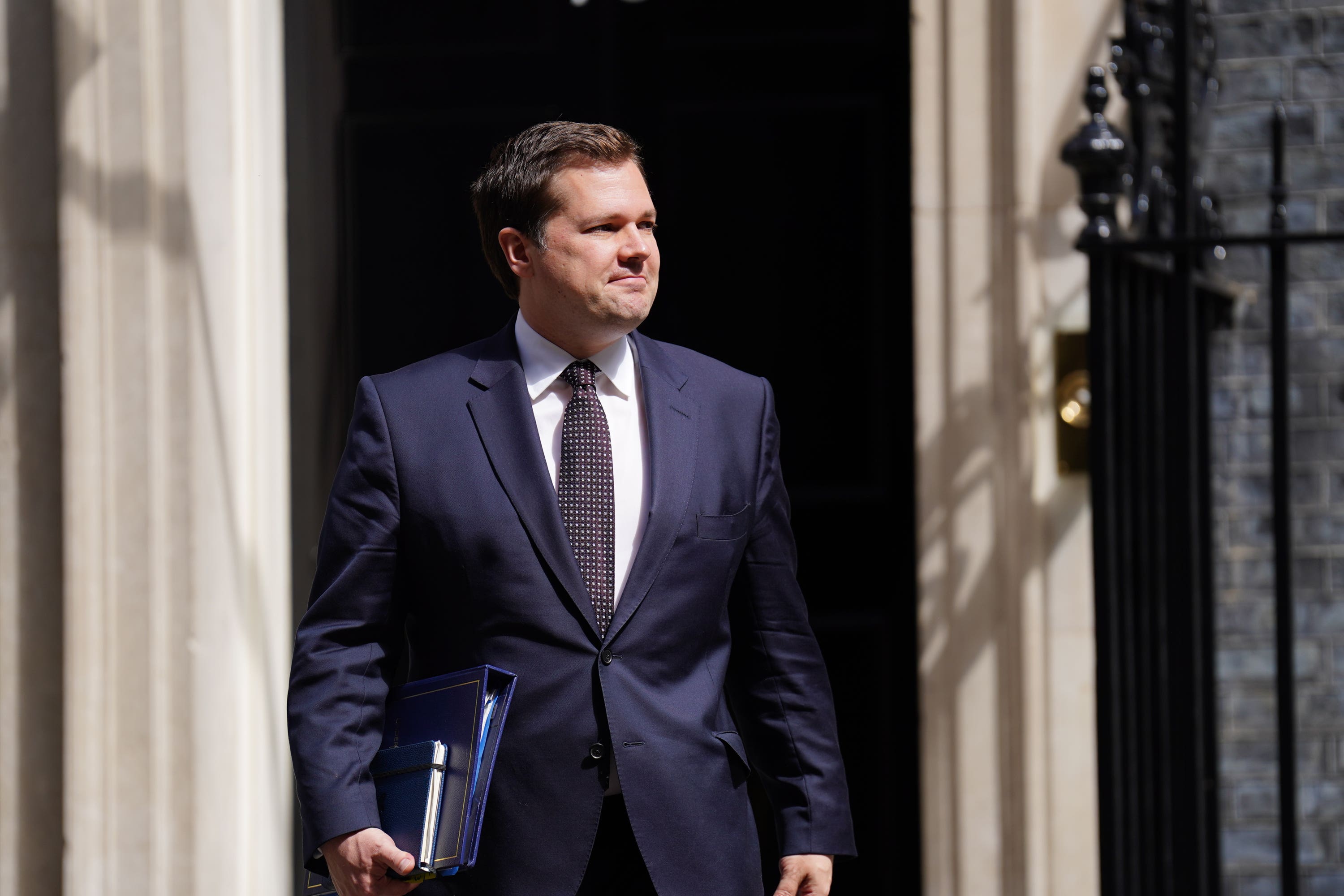Will the Tories cave to pressure and cap net migration?
Archie Mitchell looks at what Rishi Sunak has done on immigration, and what more his MPs want


With a general election approaching and Rishi Sunak’s position looking increasingly perilous, pressure is growing on the prime minister to announce an overhaul of Britain’s immigration laws.
Former immigration minister Robert Jenrick this weekend called for net migration to be capped at less than 100,000 each year.
The Tory right-winger used a Sunday Telegraph op-ed to argue the figure should be limited to the tens of thousands, months after official figures showed it had reached a record 745,000 in 2022.
And the right-wing New Conservatives group of around 25 Tory MPs has piled pressure on the PM to drastically cut net migration before the election.
The Independent looks at what Mr Sunak has done on immigration, and what more his MPs want.
What has the prime minister done on net migration?
Net migration is the difference between the number of people arriving and leaving the country.
Weeks after bombshell figures showed 2022’s figure had soared to a record 745,000, Mr Sunak and home secretary James Cleverly announced a slew of measures to bring the numbers down.
Mr Sunak says he will “do what is necessary” to cut immigration, banning overseas care workers from bringing family dependents and drastically hiking the salary threshold for skilled workers to £38,700. The PM scrapped the Shortage Occupation List, replacing it with an immigration salary list to identify those eligible for skilled worker visas.
The PM said the measures would slash the number of people arriving in Britain by 300,000 a year.
Where would that leave the figure?
A cut of 300,000 in 2024 would leave net migration at around 350,000, significantly higher than the figure mentioned in the 2019 Tory manifesto which promised that “overall numbers will come down” as the government ends freedom of movement in the wake of Brexit.
At the time, migration levels were at 226,000 and it is expected that figure could have tripled when the latest Office for National Statistics figures are published.
Mr Sunak has refused to recommit to the figure promised by Boris Johnson.
Would that appease Tory MPs?
The New Conservatives want Mr Sunak to go further, delivering at least on the Tory 2019 manifesto pledge.
In a damning letter when he quit as immigration minister, Mr Jenrick, a leading member of the group, said he “refused to be yet another politician who makes promises on immigration to the British public but does not keep them”.
“The consequences for housing, public services, economic productivity, welfare reform, community cohesion and, more fundamentally, for trust in democratic politics are all too serious for this totemic issue to be anything other than a primary focus for the government,” he added.
In his op-ed on Sunday, Mr Jenrick added: “The only way politicians can look voters in the eye and guarantee they can meet their promises to reduce net migration is to introduce a cap which would serve as a democratic lock on numbers.”
He is seen as a future leadership contender and standard-bearer of the Tory right, so his calls will add to the pressure on Mr Sunak.
Other Tory MPs have called for more nuance in the discussion of immigration figures, with former cabinet minister Sir Robert Buckland noting that they reflect hundreds of thousands of refugees from Ukraine and Hong Kong.
He has also called for students not to be included in the figures as they distort the overall picture.
What will happen in the election?
Mr Sunak is likely to face calls to make an offer on immigration in the Conservative manifesto.
The pressure to do so will be increased by the presence of Nigel Farage’s Reform UK, which has been steadily picking off Conservative voters unhappy with the party’s record on tax and immigration.
Reform’s manifesto calls for “non-essential” migration to be frozen, and the Conservatives have been warned to get tough on immigration to win voters back from Reform.
A survey by the pro-Brexit Legatum Institute asked Reform voters whether a referendum on bringing net migration down to 100,000 a year would make them more likely to vote for the Conservative Party at the next election. Four in 10 respondents (42 per cent) said they would be swayed by such a pledge.
Home Office minister Chris Philp declined to set a limit on net immigration when asked for his response to Mr Jenrick’s demand.
Mr Philp told the BBC’s Sunday with Laura Kuenssberg programme: “I’m not in a position to sit here and advocate for a hard cap today. But what I can say is that we’re taking measures that have been enacted and are now being implemented to reduce legal migration by about 300,000 a year. That’s by significantly increasing salary thresholds. It’s by reducing the numbers of dependents who can come in with migrants.
“I think the British public do want us to control, to significantly reduce migration, both legal migration as well as stop illegal migration.”
Mr Philp also said the government is “committed to substantially reducing legal migration”. He added: “We don’t think it’s right to have large-scale, low-skilled migration. We want a much smaller number of high-skilled migrants.”
Join our commenting forum
Join thought-provoking conversations, follow other Independent readers and see their replies
Comments
Bookmark popover
Removed from bookmarks